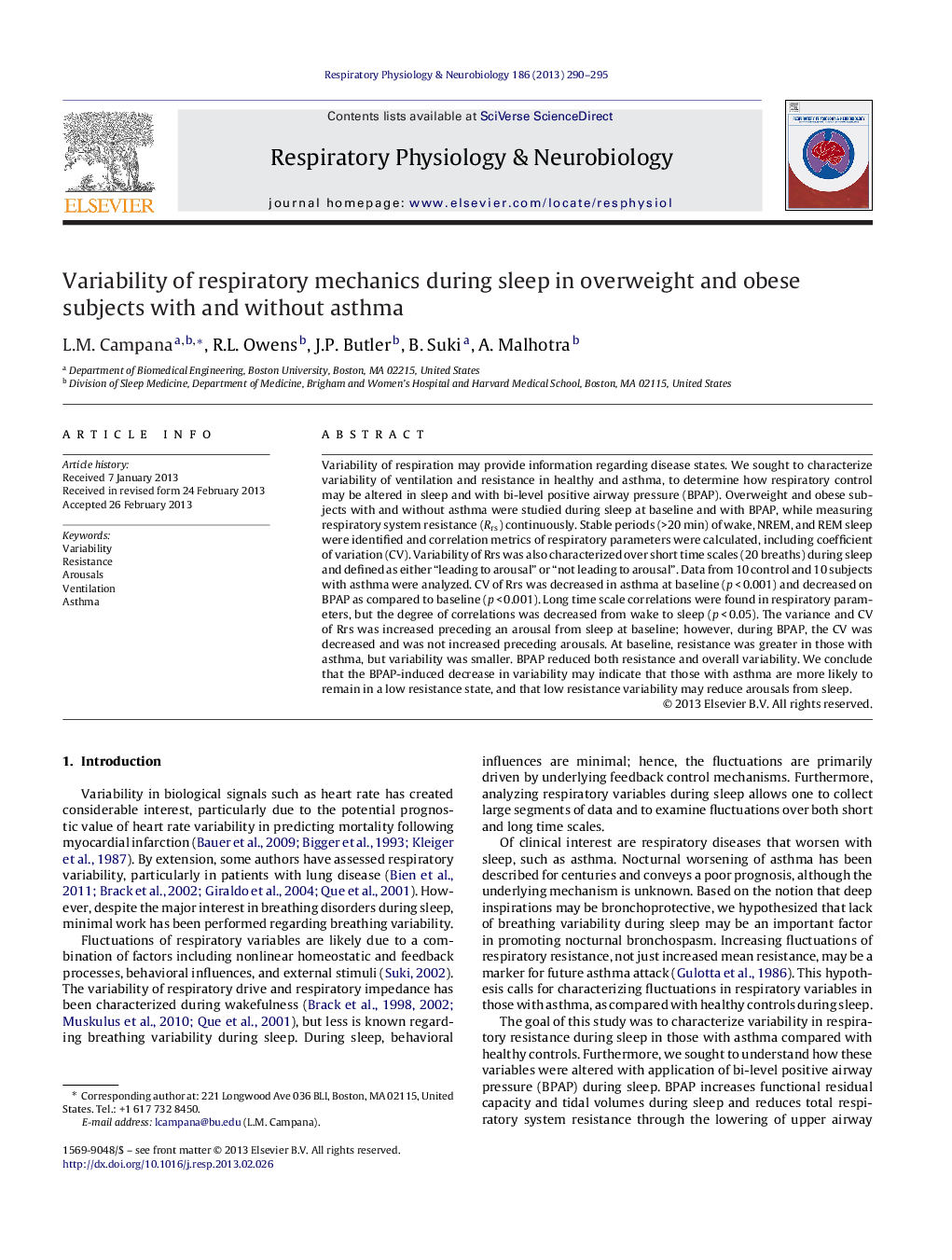| Article ID | Journal | Published Year | Pages | File Type |
|---|---|---|---|---|
| 2847261 | Respiratory Physiology & Neurobiology | 2013 | 6 Pages |
Abstract
Variability of respiration may provide information regarding disease states. We sought to characterize variability of ventilation and resistance in healthy and asthma, to determine how respiratory control may be altered in sleep and with bi-level positive airway pressure (BPAP). Overweight and obese subjects with and without asthma were studied during sleep at baseline and with BPAP, while measuring respiratory system resistance (Rrs) continuously. Stable periods (>20 min) of wake, NREM, and REM sleep were identified and correlation metrics of respiratory parameters were calculated, including coefficient of variation (CV). Variability of Rrs was also characterized over short time scales (20 breaths) during sleep and defined as either “leading to arousal” or “not leading to arousal”. Data from 10 control and 10 subjects with asthma were analyzed. CV of Rrs was decreased in asthma at baseline (p < 0.001) and decreased on BPAP as compared to baseline (p < 0.001). Long time scale correlations were found in respiratory parameters, but the degree of correlations was decreased from wake to sleep (p < 0.05). The variance and CV of Rrs was increased preceding an arousal from sleep at baseline; however, during BPAP, the CV was decreased and was not increased preceding arousals. At baseline, resistance was greater in those with asthma, but variability was smaller. BPAP reduced both resistance and overall variability. We conclude that the BPAP-induced decrease in variability may indicate that those with asthma are more likely to remain in a low resistance state, and that low resistance variability may reduce arousals from sleep.
Related Topics
Life Sciences
Biochemistry, Genetics and Molecular Biology
Physiology
Authors
L.M. Campana, R.L. Owens, J.P. Butler, B. Suki, A. Malhotra,
